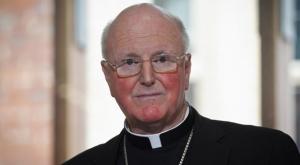Can we parlay good interfaith relationships into actual political cooperation? It may take more than interfaith work projects.
In a recent blog David Bornstein documented, and praised, efforts to unite persons of different religions in mutually agreeable work projects. http://opinionator.blogs.nytimes.com/2012/06/12/a-better-way-to-talk-about-faith/?emc=eta1 This is a timely reminder of the very effective Interfaith Youth Corp that is spreading across college campuses. By working together young adults shape themselves into a new generation of interfaith leaders who know and are comfortable with people of different faiths, despite basic religious disagreements. Through working together forming relationships rather than religious consensus comes to the fore. This is a fundamentally good idea, and one that needs to be embedded on our college and university campuses.
Yet one wonders just how far these cooperative efforts can go once the young people involved begin to probe more deeply the possibilities for working together. It is hard to find disagreement over the need to feed the hungry, house the homeless, or oppose sexual violence. But this kind of interfaith charity doesn’t ask the politically and religiously charged questions about why people are hungry and homeless in a land of plenty, or where the root causes of violence are found.
Over the last 10 or 20 years we’ve seen how a group of people who knew each other well, and worked together frequently, have become completely paralyzed by ideological differences. I refer to Congress.
The stakes are low when students engage in one-off, short term projects to address a recognized common good. Such projects don’t change the structures of power within which these needs manifest themselves. They don’t attack the privileged place of the college students who engage in them. They do not cut to the core of the world views that support these structures and places.
Take a basic question, like whether the chronically unemployed are victims of economic structures or their own laziness. Or the question of whether gays should be able to marry. Basic religious ideas about the nature of humanity will determine in part one’s answers, and how these social problems are resolved.
It may be that religious beliefs are irreconcilable as Bornstein believes. Still, for a religiously plural democracy to function it isn’t enough to agree to do good things together. We must build on mutual respect at a personal level to find a common consensus on our understanding of human nature and the purpose of human society. Otherwise our political structures will end up mired in even more acrimony and ineffectiveness than they already are. The respect that begins with shared work projects must be the foundation for a far more difficult dialogue about the foundations of bigger project called a democratic nation.











